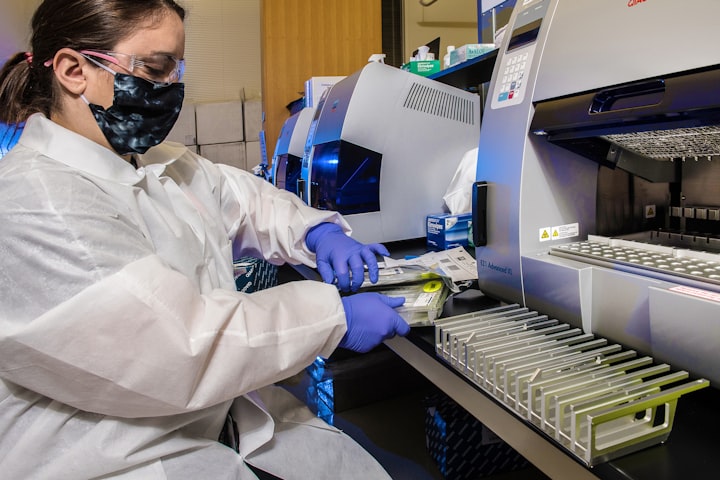Ethical Dilemmas and Genetic Testing
Telling the story of a geneticist who grapples with the emotional and ethical implications of genetic testing for Autism Spectrum Disorders. Examine the inner conflict they face when discovering potential genetic markers, questioning the potential benefits and drawbacks of such knowledge.
Dr. Elizabeth Bennett stood before the lab window, her eyes fixed on the bustling activity within. Geneticists in white coats moved with purpose, analyzing DNA samples, and decoding the secrets hidden within the human genome. Their work held immense promise, but it also presented ethical challenges that weighed heavily on Elizabeth's conscience.
In this world of genetic testing, Elizabeth was at the forefront of unraveling the mysteries of the human code. She had dedicated her life to understanding the intricate links between genetics and various disorders, including Autism Spectrum Disorder (ASD). Her expertise had brought her acclaim, but it also burdened her with the weight of responsibility.
One fateful day, a couple, Sarah and David Thompson, walked into Elizabeth's office. Their faces were etched with worry, their hands tightly clasped together. They had come seeking answers about their five-year-old daughter, Emily, who displayed signs of ASD. They hoped that genetic testing would provide them with insight and a potential path forward.
Elizabeth led the Thompsons to a small consultation room and listened as they poured out their fears and hopes. Sarah spoke of sleepless nights, the frustration of watching Emily struggle to communicate, and the desperate longing to understand the causes of her daughter's condition.
Elizabeth empathized deeply with their pain, having witnessed the struggles faced by countless families affected by ASD. She believed in the power of knowledge and genetic testing to shed light on the condition, but the ethical implications loomed large in her mind.
The lab was on the cusp of a groundbreaking discovery—an identified genetic marker that could predict the likelihood of ASD in children. The potential was immense, but it also raised challenging questions. Would knowing their child's genetic predisposition alter the Thompsons' perception of Emily? Could it inadvertently lead to discrimination or prejudice against those deemed "genetically at risk"?
Elizabeth couldn't escape the nagging voice of doubt in her mind. She had witnessed the consequences of genetic determinism, the stigmatization that could arise from labeling individuals based on their genes. She feared that genetic testing, while a powerful tool, could become a double-edged sword, capable of inflicting both pain and hope.
As she pondered the Thompsons' plight, Elizabeth's own past haunted her. She had grown up in a family marked by genetic disorders, witnessing the isolation and discrimination her own brother faced due to his condition. That experience shaped her determination to use science for the betterment of society, but it also made her acutely aware of the potential pitfalls.
Days turned into weeks as Elizabeth struggled with her decision. She spent countless hours poring over research papers, examining the moral quandaries posed by genetic testing. The weight of responsibility grew heavier with each passing moment. She knew she had to confront the Thompsons and face the difficult truth.
With a heavy heart, Elizabeth called the Thompsons back into her office. Sarah's eyes were bloodshot, her expression filled with anticipation. David clutched Emily's hand, a mixture of hope and anxiety etched on his face.
Elizabeth took a deep breath, summoning her resolve. "I understand your desire for answers," she began, her voice gentle but resolute. "But genetic testing, while offering potential insights, also carries ethical considerations. It's a decision that must be made with caution and understanding."
She explained the breakthrough her lab had achieved—the identification of the genetic marker associated with ASD. But she also shared her concerns about the potential consequences, the risk of undue labels and discrimination that could result.
Sarah's shoulders slumped, her face etched with disappointment. David's grip on Emily's hand tightened. They had come seeking clarity, hoping that genetic testing would pave the way for understanding and intervention.
Elizabeth felt a pang of guilt, knowing that her decision carried repercussions for






Comments
There are no comments for this story
Be the first to respond and start the conversation.